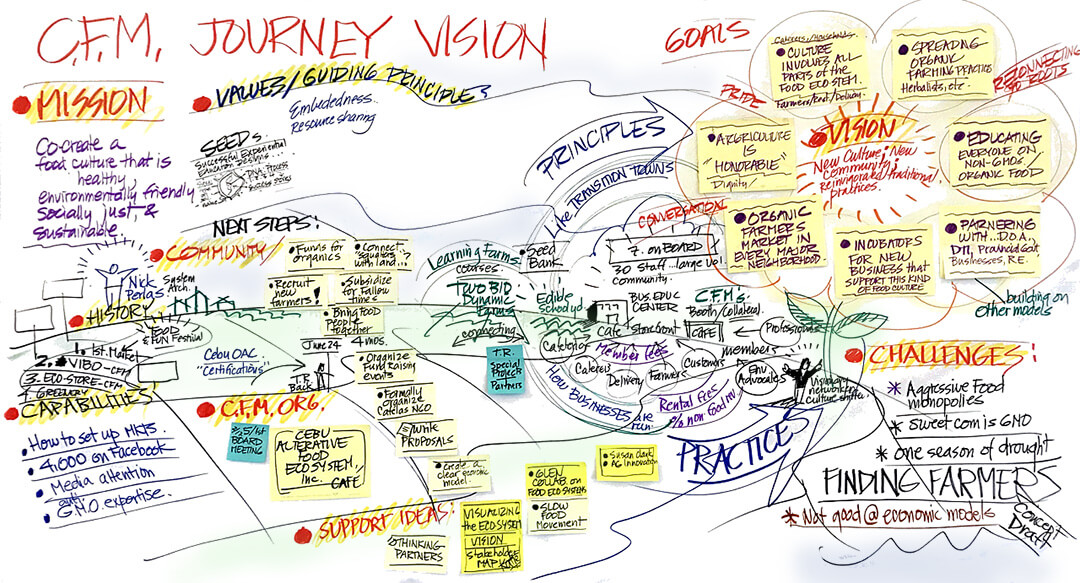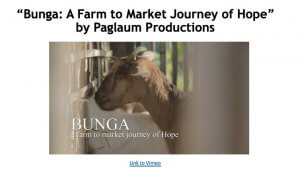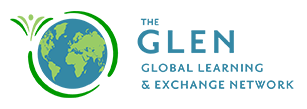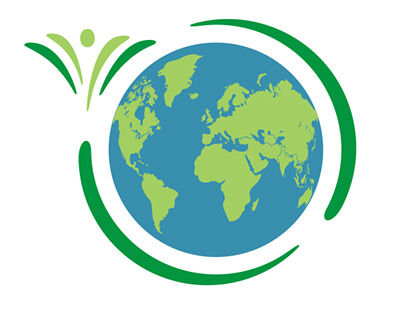The following details the progress we have made supporting Teresa Ruelas and the creation of CAFE, a new non-profit in the Philippines supporting organic farming and farmers markets.
A Report to GLEN Members about the Cebu Farmers Market GLEN Collaboration By Rob Eskridge
John Schinnerer and I met Teresa “Tressa” Ruelas at the first GLEN Gathering in San Francisco back in 2017. She was an OD professional from the SF Bay Area who moved back to the island of Cebu to be with her family. She had just started an organic farmers market in Cebu City, and it had growing pains, like any fledgling organization without many resources. The restaurants wanted organic produce, ex-pats wanted delivery, and Cebuanos were learning about organic produce and the threat posed by entry of genetically-engineered golden rice.
Where would they find organic seeds? How would they help farmers protect their farms from contamination by chemicals and GMO? How would safe, healthy food be available to more Cebuanos? How could we fund this effort? Clearly, Tressa was deep into developing both an organic food ecosystem and a volunteer organization.
Informally at first, the Cebu Farmers Market became a GLEN collaboration. David Sibbet and Gisela Wendling hosted a visioning session to “see” where Tressa wanted to take this idea of working for availability of organic produce on both the supply and demand sides.

John Schinnerer had formal education and life experience in whole systems design, including a personal passion for ecological design and holistic approaches to food systems. I had traveled to Cebu in the ’80s to help raise funds for a school that served blind children and adults by teaching them small-plot gardening. John and I started to get into monthly contact with Tressa. Over the next year, David, Marc Tognotti, Kenoli and other GLEN members weighed in with their expertise as Tressa broadened the circle of key players from different parts of the food ecosystem and volunteers in Cebu.
Fast forward to last month’s GLEN Member Gathering in Petaluma: 25 of us were in attendance, including Tressa, John and I. The group that organized the event asked us to offer a presentation on the Cebu Farmers Market collaboration. It was a pleasure to share what Tressa and her volunteers have achieved in just two years. The small contribution GLEN members were able to make actually made a big difference. We assisted her to “see” the emerging food system, her role in it, and how to develop a support organization.
Tressa shared with us that having The GLEN members as support, even by video conference, gave her not only confidence but also a sounding board for some of the decisions she was making as the markets were growing. They now have three organic farmers markets, with seed assistance for farmers, and farmer education on production planning and pricing organic produce. The organization has evolved into the Communities for Alternative Food Ecosystems Initiative (CAFEi).
GLEN members can view a five-minute video about the Cebu Farmers Markets here: 
Some slides from the PowerPoint presentation developed during the project are included at the end of this post. We put little time into the artistic side of the slides. This was simply an occasion to review a timeline for this GLEN collaboration as a springboard for harvesting lessons to apply for future collaborations.
When we were forming The GLEN several years ago, we talked about it as a place in which we can “learn by doing good.” That has absolutely happened on this collaboration. We’ve learned much that we wish to share in a future exchange — about our role as a small catalyst for the very good work that you’ll see in the video. Our initial learning includes:
- Weave the story of what is emerging early, and then update it to mirror what actually has emerged.
- The personal and human aspects of support (‘soft’ elements) are important, in addition to ‘hard’ elements, such as organization and role design, planning and strategy.
- Explicitly craft or negotiate a role for The GLEN team, just as we would during the contracting process for a paid client engagement.
Future discussions may be around the following two areas:
- Creating a circular or Bayanihan economy to grow and sustain the emerging food ecosystem, which will include creating a funders circle, a community of funders/donors who feel called to be a part of this larger story.
- Creating a way for a Learning Journeys program or concept to include Cebu, Philippines.
If other GLEN members are interested in joining this collaboration, please contact us.
If you have ideas for other collaborations, then get them into the pipeline and we’ll gladly assist as an idea moves from concept to collaboration.










